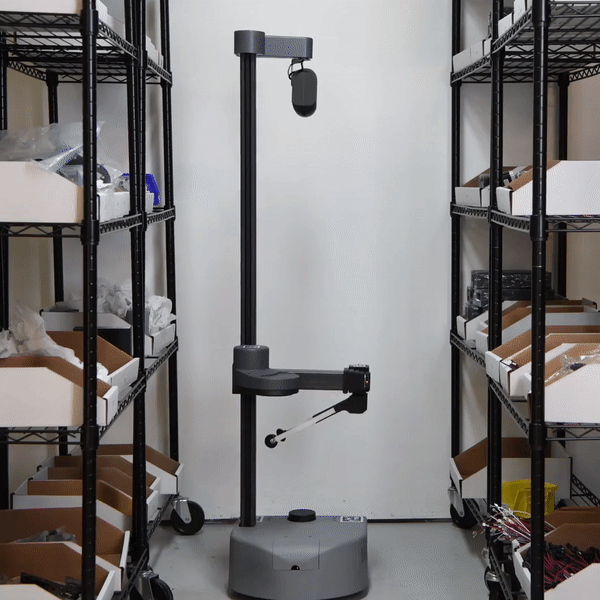For the last three years, a team led by Google's former Director of Robotics, Dr. Aaron Edsinger, has been secretly working on an assistive robot. Hello Robot has now emerged from stealth to reveal its first fruit, the Stretch Research Edition.
“What sets this robot apart is its extraordinary reach which is why we named it Stretch,” said Edsinger, who co-founded Hello Robot with Dr. Charlie Kemp, an Associate Professor in the Department of Biomedical Engineering at Georgia Tech. “Its patent pending design makes possible a range of applications such as assisting an older parent at home, stocking grocery shelves, and wiping down potentially infectious surfaces at the workplace. We see Stretch as a game-changing platform for researchers and developers who will create this future.”
Stretch's base has the look of a robot vacuum cleaner, and has a meter-plus pole rising up from one side with a telescoping arm sprouting from it. This arm can move up and down the pole – "from just above the floor to well above countertop height" – and can be extended to 52 cm (20.4 in) out from the edge of the base.

The robot can trundle along at up to 0.6 meters per second thanks to a two-wheel electric drive system with an omni-wheel caster for stability. When in motion, the gripper at the arm's end can be stowed flush over the base, swiveling around to perform tasks when needed. Hello Robot says that Stretch is the first mobile manipulator capable of easily maneuvering around the home or workplace, and can be transported between project sites in the back of a car.
The 141-cm (55.5-in)-high, 23-kg (50.7-lb) assistive robot also boasts a 3D camera, laser rangefinder, and a built-in computer with Intel Core i5 processing brains, 16 GB of RAM and 500 GB of SSD storage. The head rocks a four-channel microphone array and 8-W stereo speakers, with volume adjust. There are USB, HDMI and Ethernet ports too.
It runs on open source software, with a Robotic Operating System interface and a low-level Python hardware interface, and is reported autonomous-ready out of the box. The robot is home to numerous mount points and expansion ports for custom modification, and it's accompanied by an open source library enabling 3D printing of accessories.
The Stretch Research Edition is on sale now for US$17,950, a fraction of the cost of more complicated, full-bodied bots.
Source: Hello Robot







